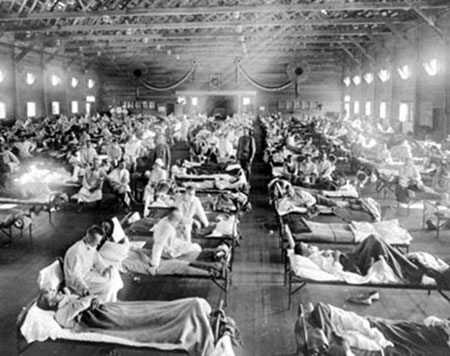|

|
|
Patients are treated for the 1918 flu pandemic in a ward at Fort Riley Kansas. [File Photo] |
Antibodies from survivors of the most devastating 1918 influenza pandemic still protect against the virus, providing a new approach to battle future epidemics that could be triggered by bird flu.
American scientists studied 32 people who lived through the 1918 flu, and found all had antibodies in their blood to kill the virus with surprising efficiency, reported the journal Nature Sunday.
The antibodies from the survivors, now aged 91 to 101, also protected mice from the killer virus, showing that 90 years on, the survivors of the epidemic are still protected.
"It was very surprising that these subjects would still have cells floating in their blood so long afterward," said Dr. James Crowe of Vanderbilt University in Tennessee, who helped lead the study.
Crowe said his team is working to get antibodies from people vaccinated with experimental shots for the H5N1 avian influenza now circulating in Asia, Europe, the Middle East and Africa.
Antibodies from survivors might make a good interim treatment while a vaccine is formulated, manufactured and distributed, according to Crowe.
The Spanish flu outbreak of 1918 swept around the world at the end of World War One killing between 50 million and 100 million people. Some experts say it was the most devastating epidemic in history.
(Agencies via Xinhua News Agency August 18,2008)